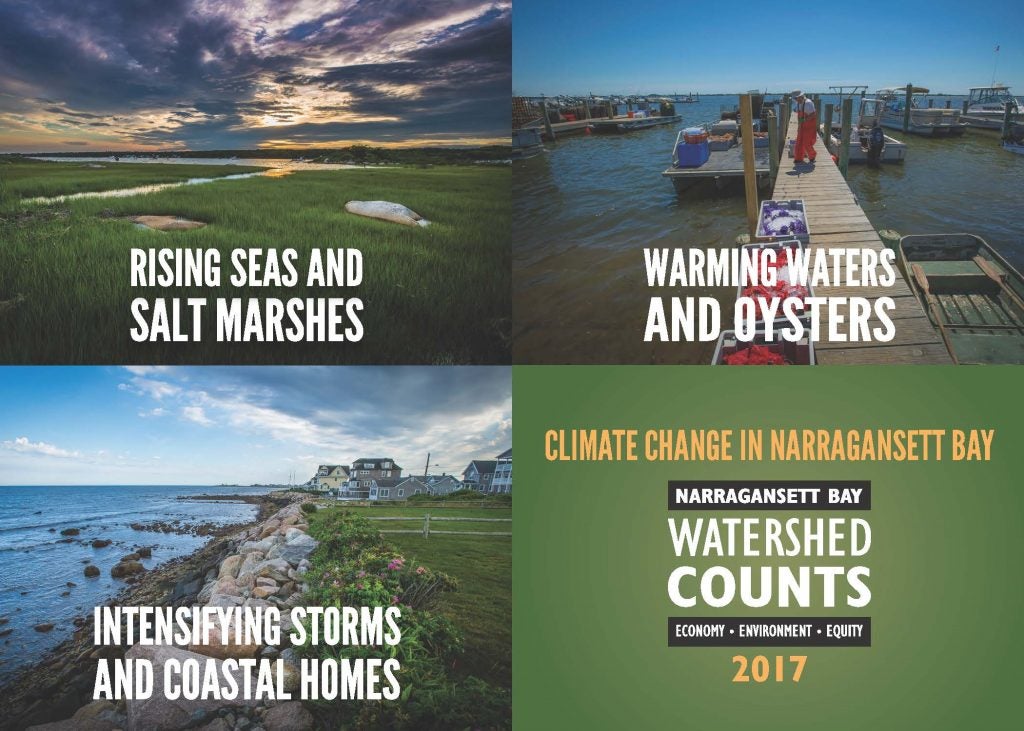
Climate change is already impacting the Narragansett Bay Watershed’s environment and economy. Fortunately, state and local agencies, cities and towns, and businesses and homeowners in Rhode Island have already begun implementing innovative strategies to protect natural resources, the economy, and public health.
While climate change takes many forms—droughts, wildfires and emerging diseases—the 2017 Watershed Counts Report focuses on the three impacts most evident in Rhode Island: accelerating sea level rise, rising water temperatures, and the growing intensity of storms. The report identifies how these recognized impacts affect the local oyster aquaculture industry, salt marsh loss and vulnerability, and residential property damage risks. It is time to confront climate change, which Rhode Island has done and continues to do as it adapts to changing climate patterns.
Released on September 19th by the Coastal Institute and the Narragansett Bay Estuary Program, on behalf of over 60 partner organizations, the 2017 Watershed Counts highlights not only the challenges, but the innovative and collaborative solutions being implemented in Rhode Island.
- State agencies and oyster aquaculture farmers work together to proactively monitor for oyster diseases that, when contaminated shellfish are eaten, can impact human health. This state-industry collaboration will become even more critical as warming waters may lead to more prevalent diseases and bacteria.
- Salt marshes are dying off as accelerating sea level rise out-paces the marshes ability to keep up. Led by the Coastal Resources Management Council, federal-state-local collaborations are implementing the innovative solution of thin-layer deposition, which sprays sediment on the marsh to raise its elevation.
- Increasing intensity of coastal storms threatens coastal homes and traditional protection structures such as sea walls were not built to ward off the increased storm surges that we will likely see. Forward-looking homeowners are more frequently using nature-based protection strategies like salt marsh grasses and fiber logs.
It is critical that all Rhode Islanders become fully aware of the many ways climate change may impact them, including environmental resources and public health, and Watershed Counts is a tool to better understand local efforts to protect the places and people that make Little Rhody unique. Please view the 2017 Watershed Counts at http://watershedcounts.org.
